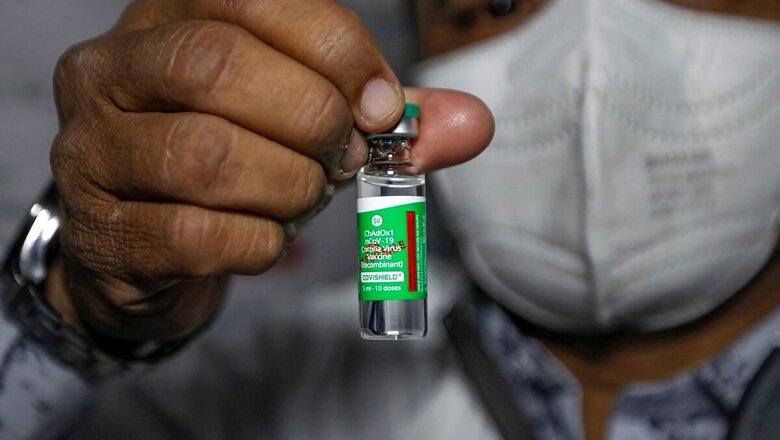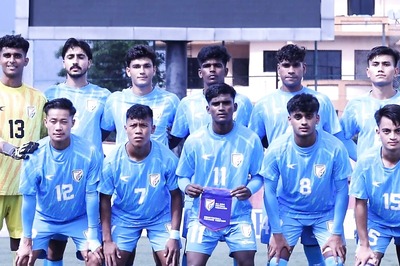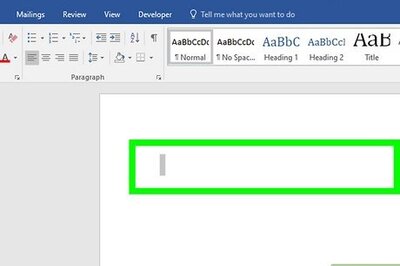
views
India’s soft diplomacy has been on display during the Covid-19 pandemic — from supplying medicines like hydroxychloroquine, paracetamol and medical equipment to other countries, to New Delhi kick-starting the supply of Indian-manufactured coronavirus vaccines on Wednesday to neighbouring countries as a goodwill gesture.
A chunk of the vaccines being dispatched to the neighbouring countries is on a grant basis. A consignment packed off from the Serum Institute of India (SII) in Pune, with 150,000 doses, was delivered to Bhutan on Wednesday. As far as Bhutan is concerned, trade of essential supplies continued to the neighbour despite Covid-19 lockdowns in 2020.
Also read: India to Begin Export of Covid-19 Vaccines to 6 Neighbouring Nations Under Grant Assistance
Meanwhile, 100,000 doses are being dispatched Maldives as well. Subsequently, the government of Maldives will strike a commercial deal with SII for 300,000 vaccines. The total population of Maldives is 500,000, so the Indian-manufactured vaccines will take care of a sizeable population there.
The commitment to Maldives, a crucial Indian Ocean archipelago nation, in the context of the Chinese aggression in the region, was made by the Foreign Secretary Harsh Vardhan Shringla during his visit to Male in November 2020. He had announced that as a close partner and friend, India would accord priority to Maldives for providing vaccines, whenever they were ready.
India has often tried to draw a distinction between the diplomatic gestures of India and China towards neighbouring countries. Case in point being Maldives, a country that has been caught in a debt trap with China in the garb of development projects. India has often stressed that its deals with other countries have no ulterior motive of financial subjugation. The grant of free vaccines adds to that narrative.
Nepal, another crucial neighbouring country whose prime minister is alleged to be showing leanings towards Beijing, has also been promised Covid-19 vaccines from India. It among the six countries whose supplies will be initiated by India on Wednesday.
India and Nepal are in the process of overcoming a period of friction after Nepal issued a revised map with three Indian territories. Even though the boundary issue was not discussed in the recent joint commission meeting, for which Nepal foreign minister Pradeep Gyawali travelled to New Delhi, the statement issued talked about the cooperation between the two countries during the pandemic.
It said, “Nepal congratulated India on the remarkable success in production of Covishield and Covaxin vaccines in India and requested for early provision of vaccines to Nepal.” It is significant to note that Nepal prime minister P Sharma Oli made a bizarre statement last year calling the Indian strain of coronavirus more virulent as compared to China or Italy’s. Nepal has also unilaterally stopped the entry of Indians.
Also read: Govt Urges Healthcare Workers to Get Covid-19 Vaccine, Says Concerns over Adverse Effects Unfounded
While there has been friction with Nepal, there was a period of discomfort with another neighbour Bangladesh as well. But in August 2020, foreign secretary Shringla, during his visit to Dhaka, made a commitment to provide vaccines to the country as a goodwill gesture. In his meeting with his counterpart Masud Bin Momen he had said that Bangladesh will get priority in the Covid-19 vaccine produced by India.
The foreign secretary’s visit was significant since it came after Dhaka’s disapproval and apprehensions over the Citizenship Amendment Act (CAA) and the implementation of the National Register of Citizens (NRC) in Assam. In December 2019, foreign minister Abdul Momen had cancelled his trip to India to express displeasure over the CAA.
While Bangladesh prime minister Sheikh Hasina had already raised the matter of NRC in Assam twice with Prime Minister Narendra Modi, the CAA debate in Parliament aggravated the situation further. During the debate, while making a case for bringing in the CAA, Home Minister Amit Shah had mentioned Bangladesh, along with Pakistan and Afghanistan, as countries where non-Muslim minorities face persecution. The Sheikh Hasina government took umbrage to this statement. Later Hasina, considered a good friend to India, had called the CAA unnecessary.
As India tried to overcome this period of friction, foreign secretary Shringla, an old Dhaka hand, went to Bangladesh despite a raging pandemic and made the vaccine offer as a goodwill gesture towards the neighbouring country.
Fulfilling this commitment, India will send 2 million free doses of Covishield vaccines to Bangladesh. Subsequently Bangladesh’s Beximco Pharmaceuticals will sign a commercial deal with the SII for more vaccines.
The other countries on the list are Seychelles and Myanmar. After clearances, supplies will also start to Sri Lanka, Afghanistan and Mauritius. All deliveries will be done in a phased manner, keeping in view India’s domestic requirements since a phased immunisation process is underway in India as well. With this, India is not only sending a message of neighbourhood first, but is also ensuring that just like the vaccines enhance immunity and prevent infection, India too can enhance goodwill and neutralise influence of China in the region through the gesture.
Read all the Latest News, Breaking News and Coronavirus News here



















Comments
0 comment